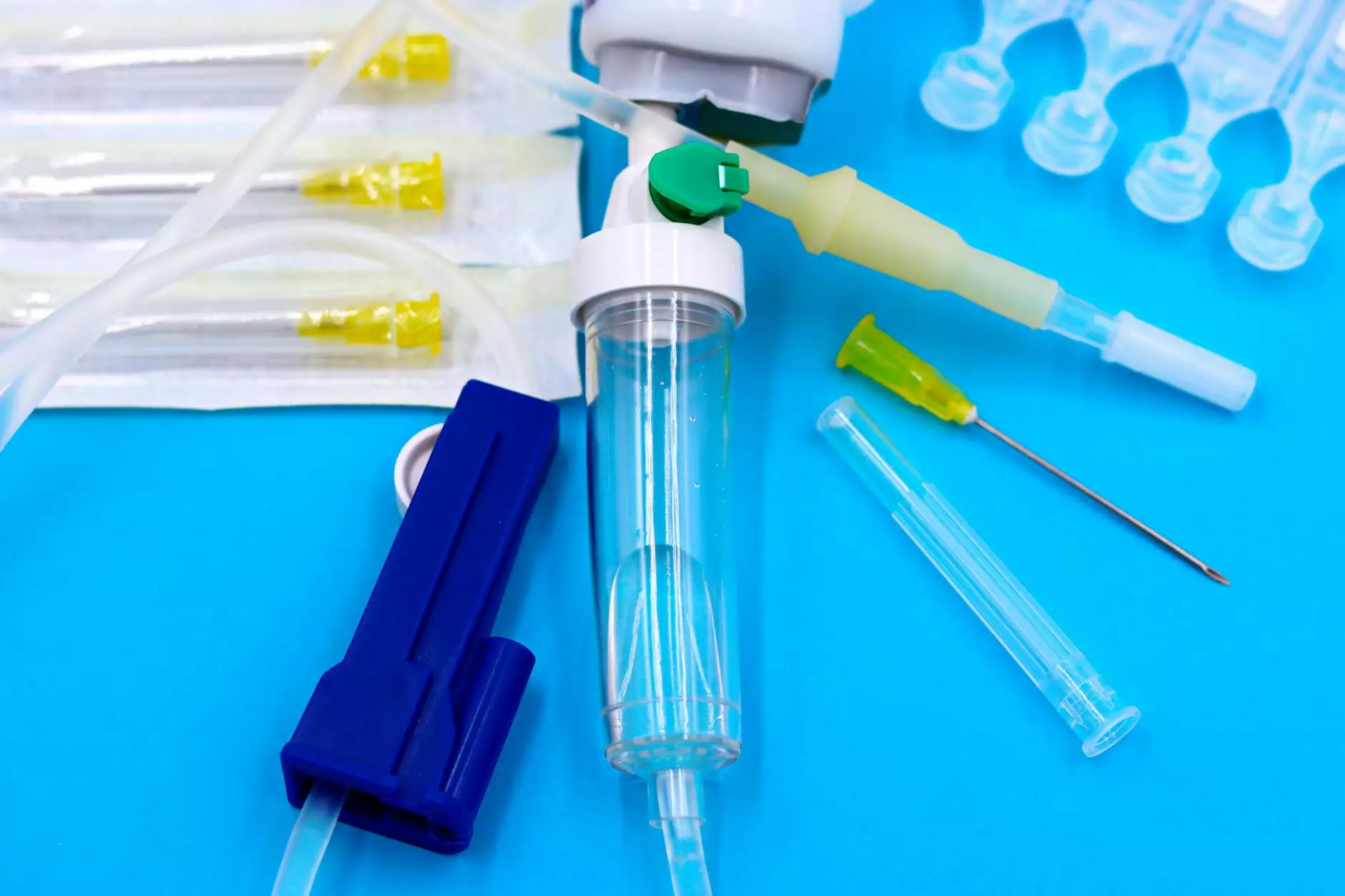CRM for Pharmaceutical Industry: Transforming Healthcare Business

The pharmaceutical industry faces unique challenges that necessitate innovative solutions. As the market becomes increasingly competitive, companies in this sector must adapt and evolve. One of the most powerful tools available to pharmaceutical businesses today is a robust Customer Relationship Management (CRM) system tailored specifically for the industry. This article delves into the importance of CRM for the pharmaceutical industry and how it can drive success through improved customer relationships, data management, compliance, and strategic marketing.
Understanding CRM in Pharmaceutical Sector
Before we explore the advantages of a dedicated CRM for pharmaceutical companies, it’s crucial to understand what CRM entails. A CRM system is a technology that helps businesses manage their interactions and relationships with potential and existing customers. In the context of the pharmaceutical industry, CRM extends beyond basic customer management. It encompasses a comprehensive approach to managing sales, marketing, customer service, and compliance in a highly regulated environment.
The Unique Needs of the Pharmaceutical Industry
Pharmaceutical companies operate in a complex landscape characterized by:
- Regulatory Compliance: The industry is heavily regulated, requiring businesses to maintain detailed documentation of interactions with healthcare providers and patients.
- Research and Development: The lengthy drug development process necessitates effective collaboration and communication between multiple stakeholders.
- Market Access and Reimbursement: Understanding and navigating pricing, reimbursement, and access issues is critical for success.
- Healthcare Professional Engagement: Building and maintaining relationships with healthcare professionals is essential for product adoption.
Key Features of CRM for Pharmaceutical Industry
A well-designed CRM system for the pharmaceutical industry should feature the following capabilities:
1. Customer Data Management
Effective customer data management enables pharmaceutical companies to store and access comprehensive information about healthcare professionals, institutions, and patients. This data can drive personalized marketing efforts and improve service delivery.
2. Compliance Automation
Ensuring compliance with regulations such as the Health Insurance Portability and Accountability Act (HIPAA) and other industry standards is crucial. A CRM system automates compliance processes, ensuring that all interactions are documented and that data privacy is maintained.
3. Sales Force Automation
Boosting sales efficiency through sales force automation features is a key function of an effective CRM. This includes managing sales pipelines, tracking interactions, and optimizing sales routes for field representatives.
4. Marketing Automation
Marketing automation tools allow pharmaceutical companies to create targeted marketing campaigns, segment audiences based on behavior, and track the effectiveness of their marketing efforts in real-time.
5. Analytics and Reporting
Data-driven decision-making is critical in today’s market. Advanced analytics and reporting features provide insights into customer behavior, sales patterns, and market trends, enabling companies to respond effectively to changes in the marketplace.
Benefits of Implementing CRM in the Pharmaceutical Industry
Integrating a dedicated CRM system can yield numerous benefits for pharmaceutical companies, including:
1. Enhanced Customer Relationships
A CRM tailored for the pharmaceutical sector helps to foster strong relationships with healthcare professionals and patients. By providing tailored information and support, companies can build trust and loyalty.
2. Improved Operational Efficiency
With streamlined processes and automated tasks, pharmaceutical companies can enhance their operational efficiency, focusing more on strategic initiatives rather than administrative tasks.
3. Streamlined Compliance Management
Having a CRM dedicated to the pharmaceutical industry simplifies compliance management. Automated compliance tools and detailed reporting reduce the risk of non-compliance, safeguarding the company’s reputation and finances.
4. Data-Driven Marketing Strategies
With comprehensive analytics, pharmaceutical companies can develop data-driven marketing strategies that target specific segments effectively, leading to increased engagement and conversion rates.
5. Increased Sales Performance
By optimizing sales processes through automation and providing actionable insights, CRM systems help pharmaceutical sales teams achieve higher performance levels and reach their targets more consistently.
Choosing the Right CRM for Your Pharmaceutical Business
When selecting a CRM for the pharmaceutical industry, companies should consider the following factors:
- Customization: The CRM should be customizable to meet the unique needs of the organization, including compliance requirements and specific marketing strategies.
- Integration Capabilities: The ability to integrate with existing systems, such as ERP and data analytics tools, is crucial for ensuring a seamless workflow.
- User-Friendly Interface: A user-friendly interface facilitates quick adoption among sales teams and other users within the organization.
- Vendor Support: Reliable vendor support and training resources are essential for ensuring the successful implementation and use of the CRM system.
Case Studies: Successful CRM Implementation in Pharma
Real-world examples illustrate the effectiveness of CRM solutions in the pharmaceutical industry:
Case Study 1: Global Pharmaceutical Company
A leading global pharmaceutical company implemented a specialized CRM system that integrated compliance, sales, and marketing functions. As a result, they improved their customer engagement by 30% and increased their annual revenue by 15% within two years.
Case Study 2: Local Biotech Firm
A local biotech firm adopted a CRM with advanced analytics capabilities that allowed them to identify trends in their customer interactions. This led to more effective product launches and a 50% improvement in sales forecasts accuracy.
Steps to Implementing a CRM System in Pharmaceutical Firms
Implementing a CRM system requires careful planning and execution. Here are the critical steps to guide the process:
- Define Objectives: Clearly outline the goals and objectives of CRM implementation tailored to the pharmaceutical context.
- Assemble a Team: Form a project team comprising stakeholders from sales, marketing, compliance, and IT departments.
- Select the Right Provider: Research and choose a CRM vendor with a proven track record in the pharmaceutical industry.
- Customize and Configure: Work with the vendor to customize the CRM to fit the organization’s specific needs and workflows.
- Training and Development: Provide comprehensive training for users to ensure they understand how to utilize the system effectively.
- Monitor and Optimize: After implementation, continuously monitor the system’s performance and gather feedback to optimize functionality.
Looking Ahead: The Future of CRM in Pharmaceuticals
The future of CRM in the pharmaceutical industry looks promising, especially with the rise of artificial intelligence and machine learning. These technologies will facilitate more personalized customer interactions, predictive analytics, and enhanced compliance measures. As the industry evolves, embracing such innovations will be pivotal for companies aiming to maintain a competitive edge.
Conclusion
In conclusion, the integration of a robust CRM for the pharmaceutical industry is no longer a luxury but a necessity. It empowers companies to enhance their customer relationships, streamline operations, ensure compliance, and drive growth. By leveraging the right CRM solution, pharmaceutical businesses can navigate the complexities of the market while positioning themselves for sustained success. For companies looking to thrive in this challenging landscape, investing in a pharmaceutical-specific CRM is a strategic step towards achieving their goals.









